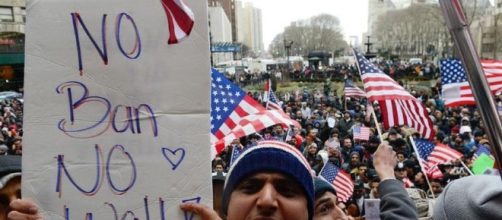On Monday, 26th the Supreme Court Trump’s travel ban, though only for some immigrants.The ban will go into effect for any foreign nationals who do not have any bona fide relationship with a person or entity in the U.S. It is a significant victory for the Trump administration, which has been battling the lower court rulings deterring the ban from being enforced. The President has time and again condemned the judges who sided against the travel ban, claiming that they compromised national security interests.
Trump and the Supreme Court
The Supreme Court is set to hear the case in the early fall, which means that Monday’s verdict could be reversed if challengers can come up with proof that the ban is illegal and unconstitutional.
Human rights groups and other activists are angered by the decision by the Supreme Court, terming it as a form of victimization against Muslims.
Others have come out strongly to oppose the ban saying the president does not have a solid national security justification for it. The travel ban is a major blow to immigration rights and civil liberties groups that had been fighting through legal action. However, Trump has called the move a temporary anti-terrorism measure needed to give the government time to improve screening procedures. He has said that in no way is he discriminating against any particular group of people.
The travel ban
The revised travel ban can be implemented this week, based on a memorandum signed by Trump.
The ban allows people who have green cards and visas to continue entering the United States. The ban forbids all refugees from entering U.S. However, those refugees that are already in transit will be allowed into the U.S. based on the waiver by the executive order.
Trump unveiled the revised rule in March that had refined the harsh conditions in the first ban. Before the ban reached the Supreme Court, it had been struck down on both statutory and constitutional grounds. The U.S Court of Appeals ruled against it, stating that it discriminated against Muslims because it targeted the countries that have large Muslim populations.
Who does the ban apply to?
The ban only applies to the aspirants who have petitioned for visa recently.
The green card holders or those who already have their visas will not be affected by this decision from the Supreme Court. Waivers have also been made available by the executive order for foreign nationals who wish to enter U.S. to study, resume work, for business obligations or to meet their spouse.


